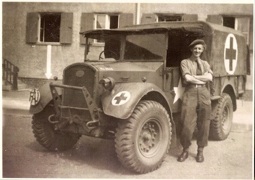Quakers and Conscientious Objection

Despite doing all we can to prevent war, wars still occur. Because of Friends belief in the Peace Testimony, many Quakers have refused to fight when called to action (a conscientious objection). Oftentimes these brave men and women have engaged in alternative roles during wars, such as becoming medics and nurses. After World War II, Quakers were given the Nobel Peace Prize for their efforts to create peace among and provide relief for war torn nations. Quakers continue to engage in peace activities today, including conscientious objection.
There are currently no Conscientious Objector laws or regulations, because there is no military draft. (Only people currently in the military can register as C.O.) Speculations as to how the draft would operate, should it be started up again, are based on how it was run the last time, and may not prove to be accurate. Nevertheless, the U.S. government has a Selective Service System, and males turning 18 must legally register, in case a draft is instituted.
- If you do not register, you cannot receive federal financial aid for college or be employed by the federal government.
- When you register, there is no place on the form/card to indicate you want to be classified as C.O. Also, the card will be destroyed once its data is entered in the system, so nothing you "write in" will be saved.
IF YOU ANTICIPATE FILING FOR CONSCIENTIOUS OBJECTOR STATUS:
- The Objector.org website has a page dealing with how to register.
- Begin now to CREATE A VERIFIABLE PAPER TRAIL indicating your convictions. You can do this the following way. -- Write a letter to your Meeting or Church, stating your convictions, including WHEN, WHERE, AND HOW YOU GOT THESE BELIEFS. -- Send a copy of your letter to YOURSELF (as well as the Meeting) BY CERTIFIED MAIL. -- When you receive the letter, keep it UNOPENED. The dates on the envelope will prove when you wrote the letter, and the sealed envelope will show that you have not changed it.
- Make your beliefs known, so adults can write letters stating you have held them for a long time.
- During the previous draft, the C.O. registration form asked "when, where, and how did you get these beliefs?" and draft review boards (the ones you must appeal to should your request for C.O. status be denied) also asked this question. They may do so again.